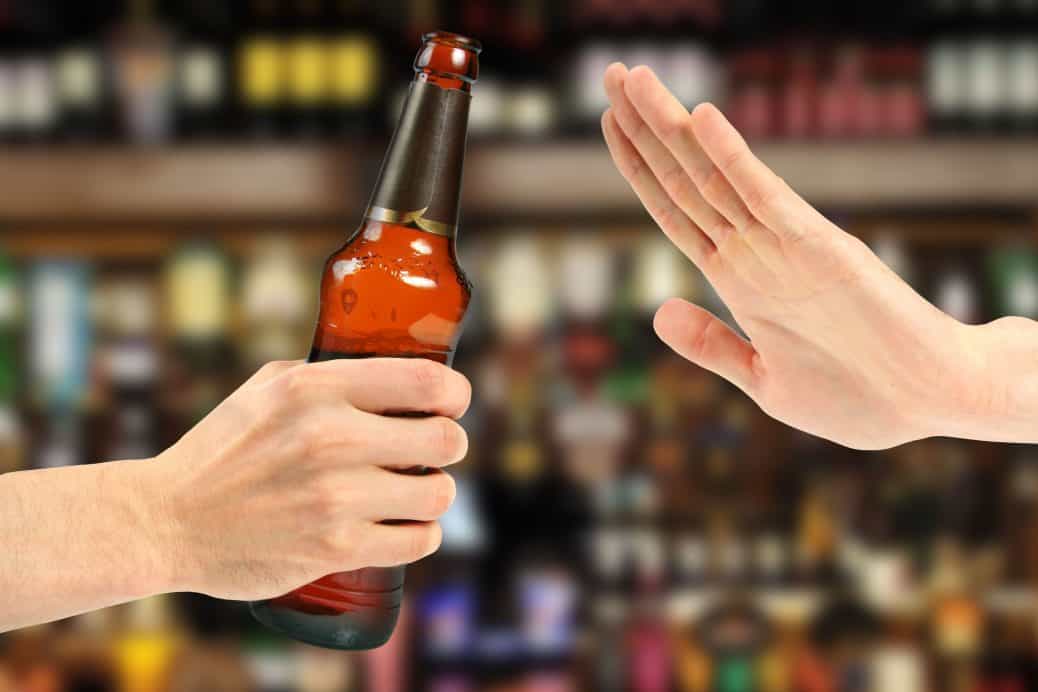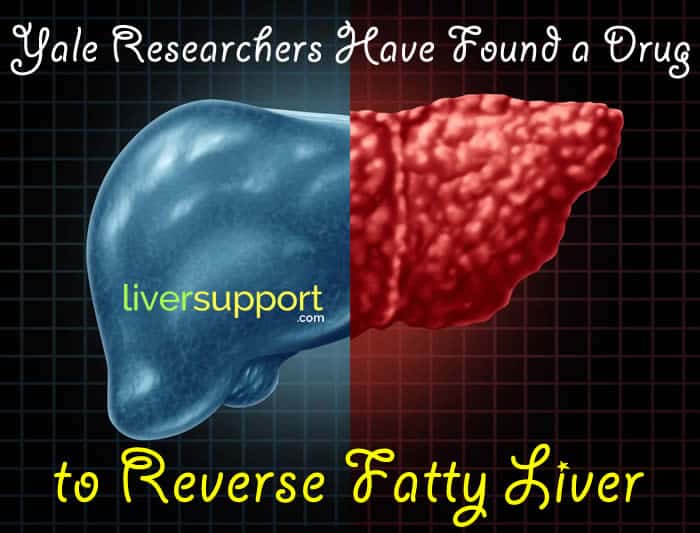
Previous
Liver Protection Is as Important as Protecting Your Heart: Here’s Why

Next
4 Ways Betaine Supports Your Liver
Yale Researchers Have Found a Drug to Reverse Fatty Liver
Take a look at promising new studies on reversing fatty liver, as well as lifestyle prevention tips you can do on your own.
clWhen possible, it is imperative to reverse a fatty liver. An unchecked fatty liver can cause fatigue, nausea, and jaundicing (yellowing of your skin), and it can develop into more serious conditions like non-alcohol fatty liver disease (NAFLD) and nonalcoholic steatohepatitis (NASH) (1).
Fatty liver (also known as hepatic steatosis) affects roughly one in every five Americans and, while imaging tests are available, the only sure way to get a diagnosis is by getting a liver biopsy (5).
Unfortunately, both NAFLD and NASH currently lack FDA-approved treatments (3).
That’s what makes a recent study published in The American Journal of Managed Care by researchers at the Yale School of Medicine so exciting! Researchers there found a specific drug called controlled-released mitochondrial protonophore (CRMP) that reduced fat in the liver by “activating mitochondria in the liver to mediate metabolic syndrome and other related abnormalities (1).”
Liver Disease and Metabolic Syndrome
Fatty liver, NAFLD and NASH have long been associated with metabolic syndrome which is classified as a group of metabolic ailments including heart disease and type 2 diabetes (4). What makes the new Yale research so interesting is that CRMP allows the liver to use excess energy by forcing protons to flow from the mitochondria – not only mediating metabolic syndrome, but also successfully reversing NAFLD in the rhesus macaques monkeys used as subjects in the trial.
It goes without saying, but this could be significant for anyone with NAFLD, especially before it progresses into the more serious and difficult to reverse NASH.
This Yale study is the most recent in a long line of studies and trials examining the management and prevention of fatty liver disease, but the road to an FDA-approved treatment is a long and arduous one.
While this new research is promising for those with a fatty liver and people with metabolic syndrome, it may be years before human trials commence and potentially decades before an FDA-approved therapy comes to market.
That’s why prevention and reversing a fatty liver via a healthy diet, liver supplementation, and education are all extremely important to understanding and circumventing some of the major causes of fatty liver disease.
Reversing Fatty Liver Disease in Humans
Taking a step away from Yale’s animal trials, there are a great many human sufferers and caregivers who want to know the best way to reverse fatty liver disease. By “best,” we interpret that to mean the most natural, healthy, and expedient ways. Unfortunately, there’s no universal or straightforward answer to that prompt as there are multiple factors that play into whether or not fatty liver disease is reversible.
- For example, age is a huge factor in how quickly your liver can regenerate. In general, the younger you are, the faster your liver will regenerate and recover from fat accumulating and scarring.
- Furthermore, the sooner fatty liver disease is discovered, the more likely it can be healed and reversed.
- Finally, the cause of the liver damage is also a significant deciding factor in how long regeneration will take. If alcohol is causing liver damage, then quitting can mean the fat accumulating at your liver could disappear in as few as six weeks if no fibrosis is present (2). However, fibrosis and cirrhosis, both of which are characterized as scarring of the liver, are much more difficult to reverse.
Best Strategies to Reverse Fatty Liver

In general, weight loss resulting from changes to your diet and exercise are considered some of the most effective and all-round healthy ways to reduce fatty buildup in your liver.
According to a recent New York Times Article, patients with fatty liver disease “need to lose about 3 percent to 5 percent of their body weight to see reductions in liver fat. But…more weight loss — up to 10 percent — is needed to improve more severe symptoms like inflammation in the liver (5).”
A similar study with a robust participation pool of 293 patients, all of whom had historically proven NASH, was published in the Journal of Gastroenterology. With liver biopsies being taken before and after the study, researchers found that, after a 52-week period of physical activity, most patients had experienced a regression of fat in their liver, with the most significant reduction coming from those who experienced a 10% reduction in weight (6).
After physical activity, diet is the next largest factor contributing to fatty liver disease. The most destructive things for our liver include alcohol as well as processed fats and sugars.
The Fatty Liver Foundation suggests eliminating the following from your diet in order to lessen the strain and workload of your liver:

- All alcohol.
- Most saturated fat and no red meat.
- All non-skim dairy products.
- Trans-fat and all hydrogenated oils.
- High fructose corn syrup.
- Most sodium (Aim for 1,500 mg of salt/day)
Eliminating the above from your diet should help you reverse fatty liver.
But, on the flip side, there are also a significant number of foods that will bolster your liver function and help prevent fat from accumulating there.
Best Foods & Home Remedies for Reversing Fatty Liver
One of the best diets for reducing fat in your liver is the Mediterranean diet. The Mediterranean diet replaces processed and saturated fats with olive oil, and emphasizes fruits, vegetables, whole grains, legumes, and nuts. The Mediterranean diet also champions fish as a great source of good oil and omega-3 fatty acids as opposed to red meat and poultry, which is significantly more difficult for our bodies to break down.
Foods with antioxidant properties are also extremely effective in managing and preventing fatty liver disease.
Supplementing with antioxidants is very beneficial for your liver. Examples of great antioxidants include turmeric, NAC, milk thistle, as well as CBD oil. Natural Wellness’s Clinical Liver Support was specially designed to fight fatty liver disease and contains all 3 supplements listed above. CBD Oil reduces fat and scar tissue accumulation in your liver, helping to prevent progression of liver issues. THC free CBD is ideal for people seeking a CBD product without any trace amounts of the psychoactive ingredient THC. No high and no drug test issues.
Practical First Steps
Beyond diet, a proactive protective measure against liver disease is asking your primary physician if you can be vaccinated for hepatitis A and hepatitis B. And, while you’re at it, make sure to consult your doctor about any significant changes you make to your diet or lifestyle routines, as sometimes new supplements or foods can react adversely with whatever medications you may already be taking.
- Caffrey, M. (2019, October 7). Experimental Drug Reverses Fatty Liver Disease, Cuts Cholesterol. Retrieved October 9, 2019, from https://www.ajmc.com/newsroom/experimental-drug-reverses-fatty-liver-disease-cuts-cholesterol Copyright AJMC 2006-2019 Clinical Care Targeted Communications Group, LLC.
- Orfanidis, N. T., By, Orfanidis, N. T., & Last full review/revision July 2019 by Nicholas T. Orfanidis. (2019). Alcoholic Liver Disease - Liver and Gallbladder Disorders. Retrieved October 15, 2019, from https://www.merckmanuals.com/home/liver-and-gallbladder-disorders/alcoholic-liver-disease/alcoholic-liver-disease
- Treatment for NAFLD & NASH. (2016, November 1). Retrieved October 15, 2019, from https://www.niddk.nih.gov/health-information/liver-disease/nafld-nash/treatment. U.S. Department of Health and Human Services Published by The U.S. Department of Health and Human Services
- Paschos, P., & Paletas, K. (2009, January). Non-alcoholic fatty liver disease and metabolic syndrome. Retrieved October 16, 2019, from https://www.ncbi.nlm.nih.gov/pmc/articles/PMC2633261/
- O'connor, A. (2015, December 22). Ask Well: Can You Reverse Fatty Liver? Retrieved October 16, 2019, from https://well.blogs.nytimes.com/2015/12/22/ask-well-can-you-reverse-fatty-liver/
- Vilar-Gomez, E., Martinez-Perez, Y., Calzadilla-Bertot, L., Torres-Gonzalez, A., Gra-Oramas, B., Gonzalez-Fabian, L., … Romero-Gomez, M. (2015, August). Weight Loss Through Lifestyle Modification Significantly Reduces Features of Nonalcoholic Steatohepatitis. Retrieved October 16, 2019, from https://www.ncbi.nlm.nih.gov/pubmed/25865049
- Sofi, F., & Casini, A. (2014, June 21). Mediterranean diet and non-alcoholic fatty liver disease: new therapeutic option around the corner? Retrieved October 16, 2019, from https://www.ncbi.nlm.nih.gov/pmc/articles/PMC4064079/






